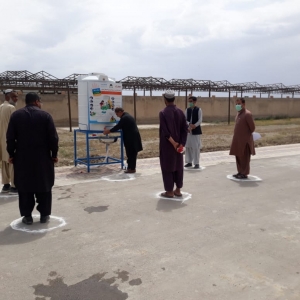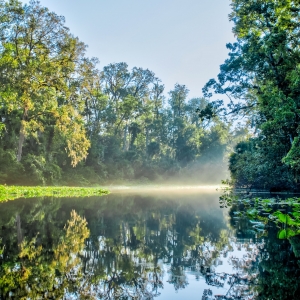The Stream, October 20, 2020: Indian Cities Look For Alternative Water Supplies As Demand Increases
YOUR GLOBAL RUNDOWN
- Almost half of the U.S. is experiencing unprecedented drought.
- Landslides and tsunamis are becoming more common as glacial ice continues to melt in the world’s coldest regions.
- The Japanese government is planning to start dumping over a million tons of radioactive waste into the ocean.
- New Jersey extends its utilities moratorium during the Covid-19 pandemic.
Millions of Americans are unaware they live on flood and wildfire prone land.
“Basically, every time it starts raining, the panic and anxiety start kicking in.” – Akouete Yemey, a resident of Roanoke, Va. who didn’t find out that his home was in a flood plain until shortly before he closed on it. A new report from NPR found that about 15 million properties are at risk for flooding and 4.5 million homes are at risk from wildfires, but potential home and property buyers are rarely made aware of that information. If information is presented to potential buyers, it is often presented in a confusing way or too late in the process. Louisiana, whose coast was hit by two back-to-back hurricanes this year, has the most comprehensive flood disclosure law in the country. Residents there are factoring flood risk into their housing decisions more than other Americans, but the benefits of living in flood-prone places still outweigh the risks for many families. For those who remain oblivious, Alice Hill, who led disaster planning at the National Security Council under President Barack Obama, said those millions of families could be the most affected by a future that will be guided by climate change.
THE LATEST WATERNEWS FROM CIRCLE OF BLUE
HotSpots H2O: Honduran Mine Protestor Shot and Killed, Others Continue to Await Trial – A man who protested against a mining development in Honduras was shot and killed inside his home last week. Arnold Joaquín Morazán Erazo was one of 32 people from the community of El Guapinol charged with criminal offenses for protesting an open-pit iron oxide mine that the community claims threatens its land and water supply.
What’s Up With Water – October 19, 2020 – This week’s episode covers an illegal gold rush in Zimbabwe, new research out of Australia that highlights the ways drought threatens the world’s wetlands, and a report from the International Rescue Committee that found that 31 percent of women in 15 African countries reported incidents of harassment and sexual violence while collecting water.
Rapid Warming of Glacial Mountain Areas Is Causing More Landslides and Tsunamis
Scientists are finding that the rapid warming of traditionally cold places around the world, such as Alaska, are causing landslides and tsunamis that could threaten towns and tourist attractions, the Guardian reports. Earlier this year, over a dozen geologists warned that a major landslide in the Barry Arm fjord in Alaska was “likely” in the next 20 years and “possible” within a year. A landslide could prove to be disastrous, with the potential to reach hundreds of meters up nearby mountains and flood the popular tourist destination. In preparation, researchers are hoping to develop sensors to predict when a slope is more likely to fail.
TODAY’S TOP STORIES, TOLD IN NUMBERS
45 PERCENT
Almost half of the United States is experiencing widespread drought, the New York Times reports. Forecasters predict southern and southwest states will experience and even warmer and drier winter, as northern parts of the country could improve and see wetter conditions in the coming months. The cause of the drought might be linked to La Niña, a phenomenon that occurs every two to seven years and causes the upper layer of the eastern tropical Pacific Ocean to cool to below normal temperatures. Climate change is causing a surge in extreme weather across the globe. This year has been especially warm, including traditionally cold regions like the Arctic.
In context: When It Rains, Texas Forgets Drought and Worsening Water Scarcity
1.2 MILLION TONS
The Japanese government has faced international scrutiny over plans to dump 1.2 million liters (320,000 gallons) of radioactive waste directly into the ocean, reports Forbes. Water used to cool radioactive fuel cores at the Fukushima nuclear plant became contaminated but cannot be removed. The water was moved to storage tanks which are now almost full, prompting the decision to dump the water. The tanks are set to reach maximum capacity in 2022.
ON THE RADAR
New Jersey has extended its moratorium on water, gas and electricity utilities, which began in April in response to the Covid-19 pandemic, through March 15, 2021. Philly Voice reports that the state is also providing $15 million in coronavirus relief funds to reduce utility charges for low-income households. Moratoriums on utilities have become common across the United States, although many states have lifted the suspensions since the pandemic began.
In context: Utilities Ordered To Forgive Customer Water Debt
Jane is a Communications Associate for Circle of Blue. She writes The Stream and has covered domestic and international water issues for Circle of Blue. She is a recent graduate of Grand Valley State University, where she studied Multimedia Journalism and Women, Gender and Sexuality Studies. During her time at Grand Valley, she was the host of the Community Service Learning Center podcast Be the Change. Currently based in Grand Rapids, Michigan, Jane enjoys listening to music, reading and spending time outdoors.






Leave a Reply
Want to join the discussion?Feel free to contribute!